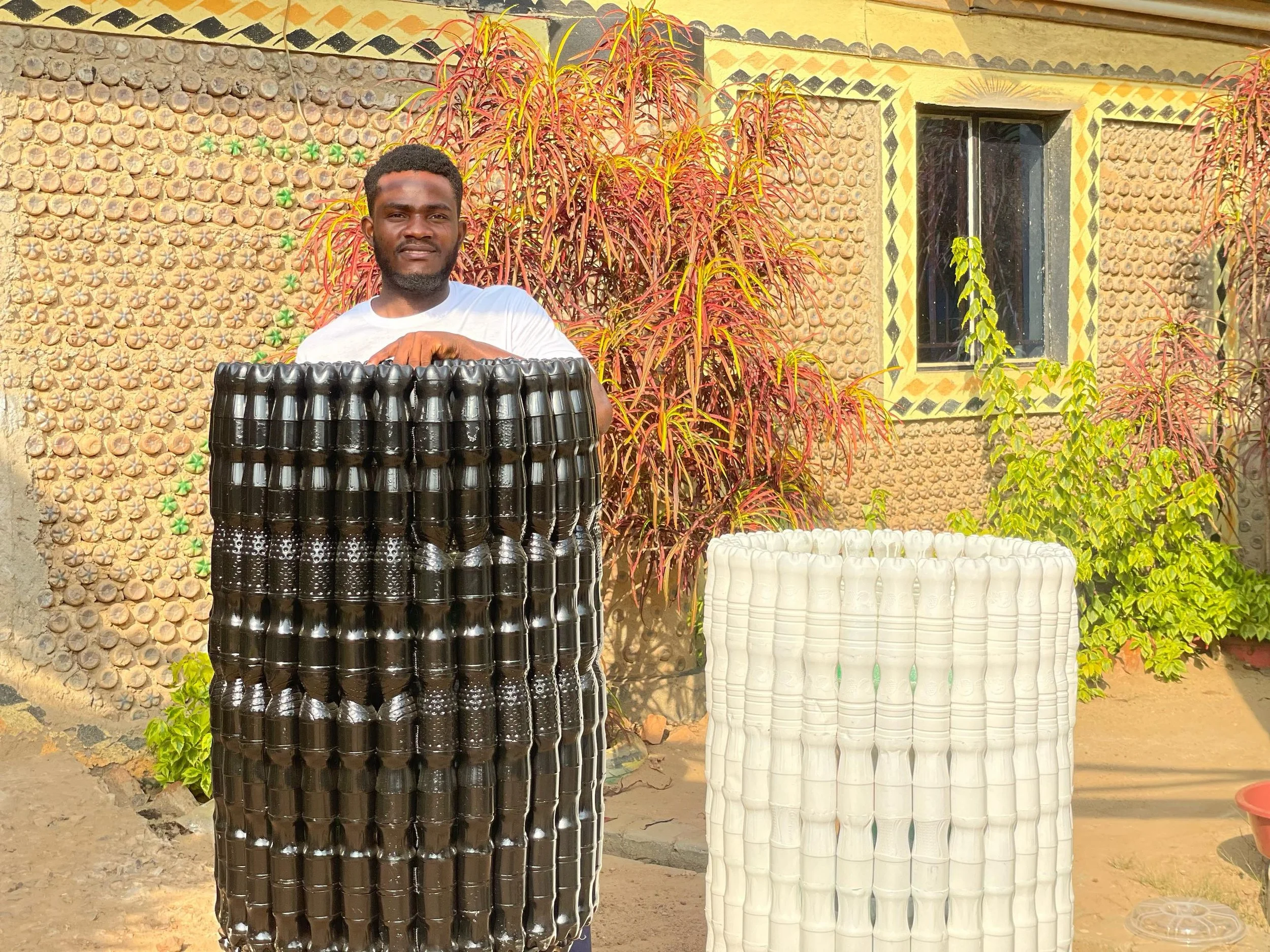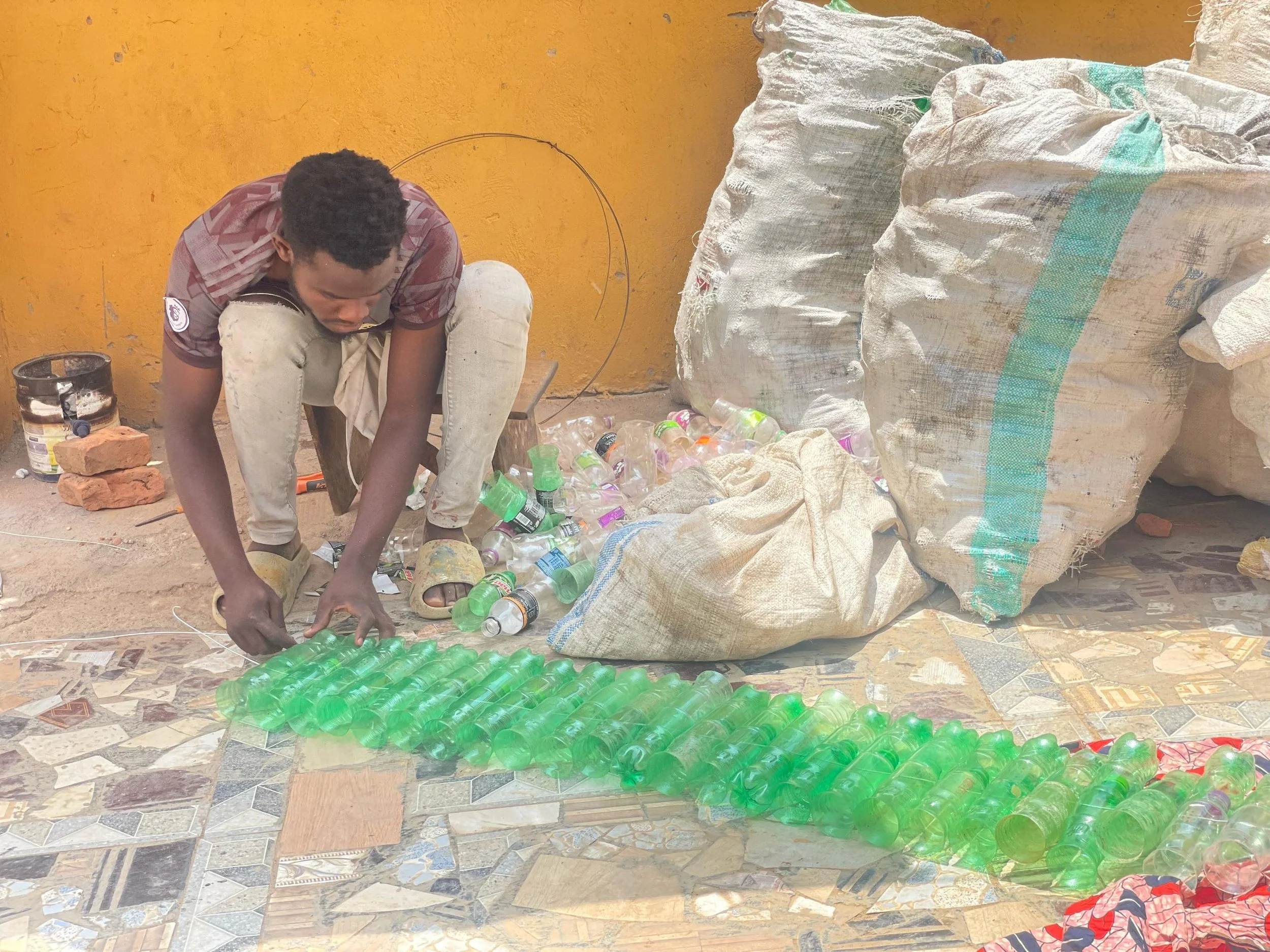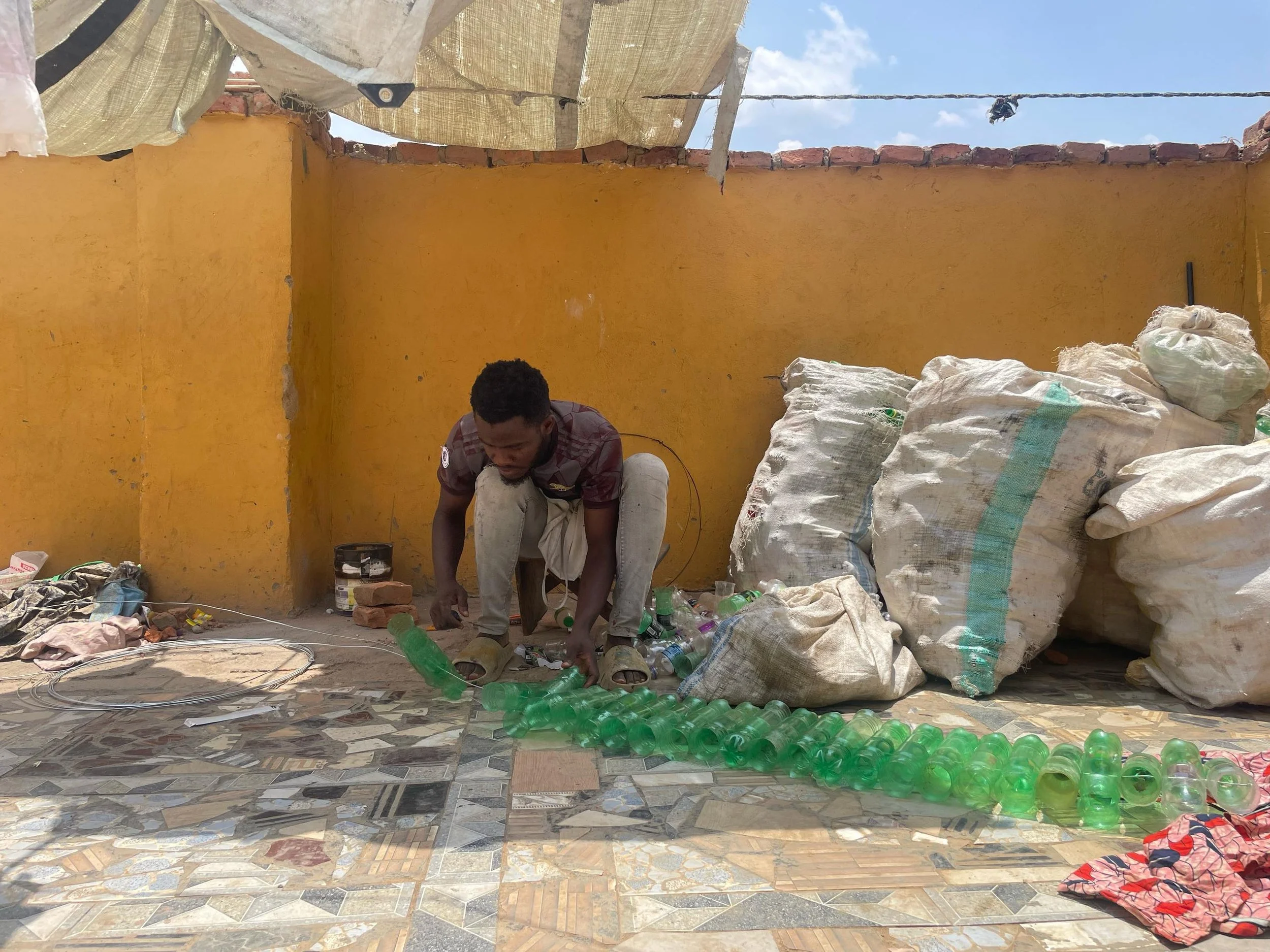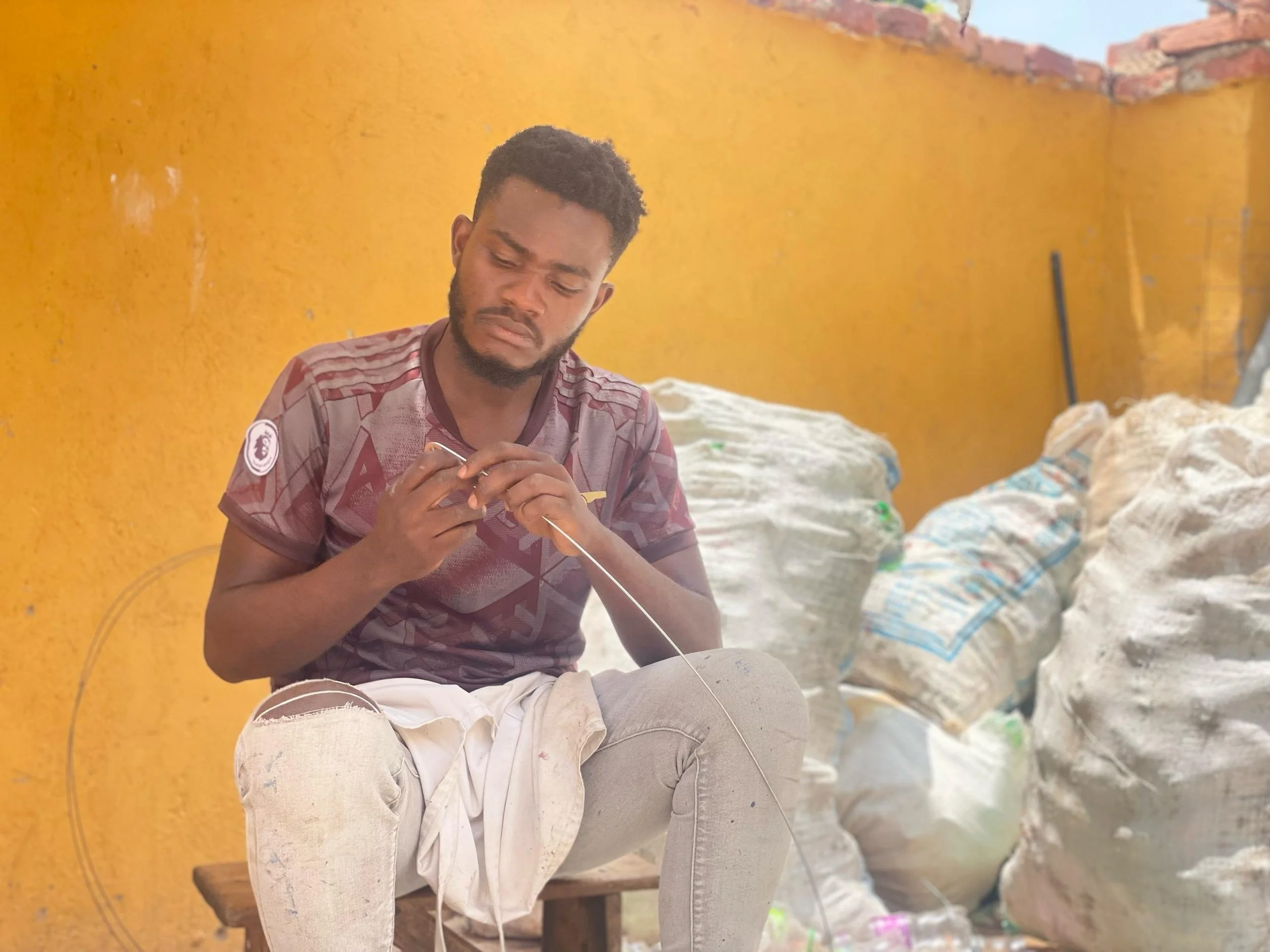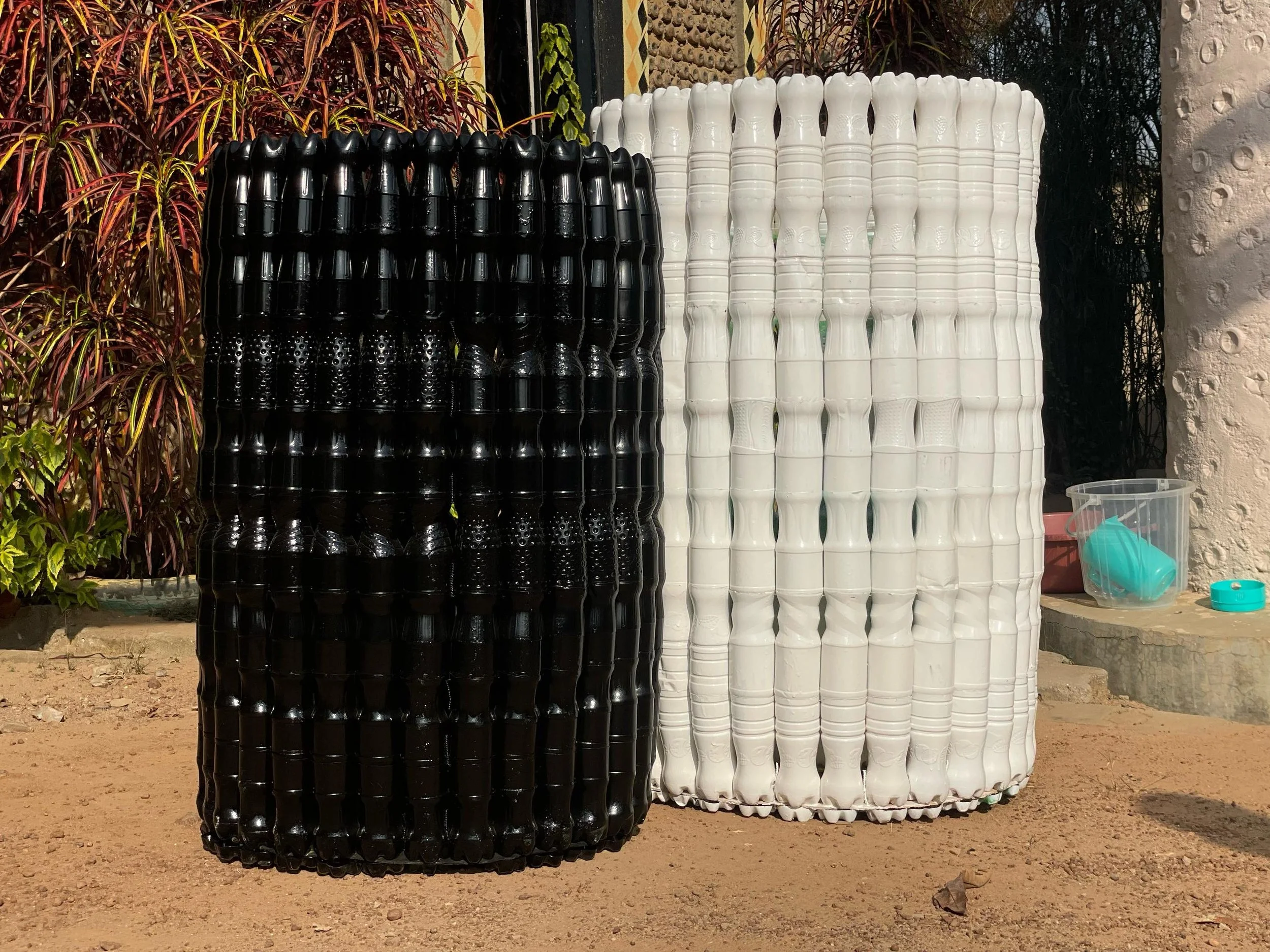Fighting Plastic Pollution: How Carmel Ramazani and WASTFORM Turn Waste into Durable Dustbins.
In Nakivale Refugee Settlement, a home to over 200,000 people, plastic waste poses a significant daily challenge. Without an effective plastic waste management system, plastic bottles accumulate in the streets and public spaces, polluting the environment and threatening public health. While it is widely known that plastic also harms aquatic ecosystems, Carmel chooses to focus on solutions. Through his initiative, Wastform—a combination of the words "waste" and "transform"—Carmel transforms plastic waste, particularly plastic bottles, into beautiful and durable dustbins. This effort not only addresses the plastic issue but also creates jobs and economic opportunities for our community.
Wasteform is not just a recycling effort; it’s a sustainable business that will provide employment, waste management solutions, and environmental awareness.
How does Wastform Work?
From a stock of bottles to a dustbin. After finishing to make the dustbin, it’s painted to make it beautiful.
Wasteform’s process is designed to be both innovative and impactful:
Collecting plastic waste: Wastform gathers discarded plastic bottles from streets, markets, and fields.
Recycling and repurposing: These bottles are cleaned and creatively transformed into long-lasting dustbins.
Selling the dustbins: Local organizations, businesses, and households purchase them, ensuring proper waste disposal.
Creating jobs: As demand grows, Wastform plans to train and employ more people to collect, clean, and assemble the dustbins.
This model ensures that Wasteform cleans the environment and creates meaningful employment opportunities.
Carmel & Wastform
Carmel presenting Wastform at the Promise Hub’s graduation ceremony of the 8th Cohort.
Carmel Ramazani is a Congolese refugee living in the Nakivale refugee settlement for six years. Passionate about recycling, Carmel is one of the students from Promise Hub, known as the Game-changers of the 8th Cohort. He initiated this project after achieving our mentoring program and our online course FOUNDER 101, which was provided by our partner, Funzi.
Capacities & Pricing
Carmel in his workshop making a dustbin.
Since its establishment 3 months ago, Wastform has produced over 80 dustbins. Of these, 60 have been sold at prices ranging from 10,000 to 50,000 Ugandan Shillings, depending on their capacity. The price of each dustbin is determined by its size, which corresponds to the number of plastic bottles used in its construction. Wastform offers dustbins at three different price points:
10,000 Ugandan Shillings (USD 2.8) for a dustbin made from 80 plastic bottles.
20,000 Ugandan Shillings (USD 5.7) for a dustbin made from 150 plastic bottles.
50,000 Ugandan Shillings (USD 14.2) for a dustbin made from 280 plastic bottles.
Carmel’s message is powerful: "Eliminating plastic production may be difficult, but we can reduce plastic pollution. We invite everyone to take action—every effort makes a difference. Join us in the fight against plastic pollution by choosing our products.”
Wastform is on a mission to revolutionize recycling by enhancing the production of dustbins and increasing plastic waste recovery. To recycle over one ton of plastic annually, they aim to incorporate a wider range of plastic materials as raw inputs. They seek advanced technologies to scale their operations to achieve this ambitious vision. Your support in acquiring a 3D printer will be invaluable, enabling them not only to produce dustbins but also to innovate and create a variety of sustainable products.
Join Wastform in making a difference for our environment!
By Albert Mesi Mbusa

